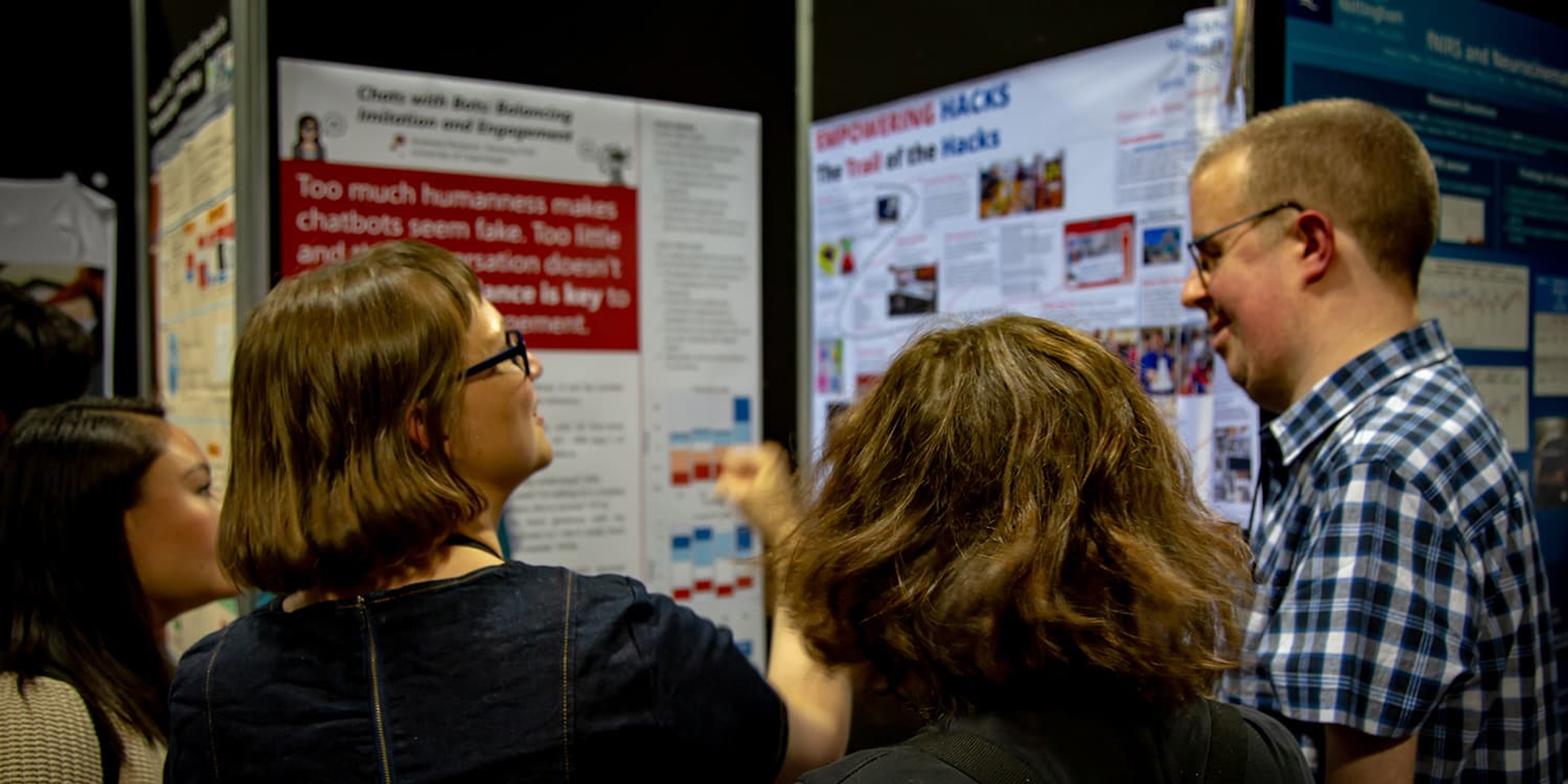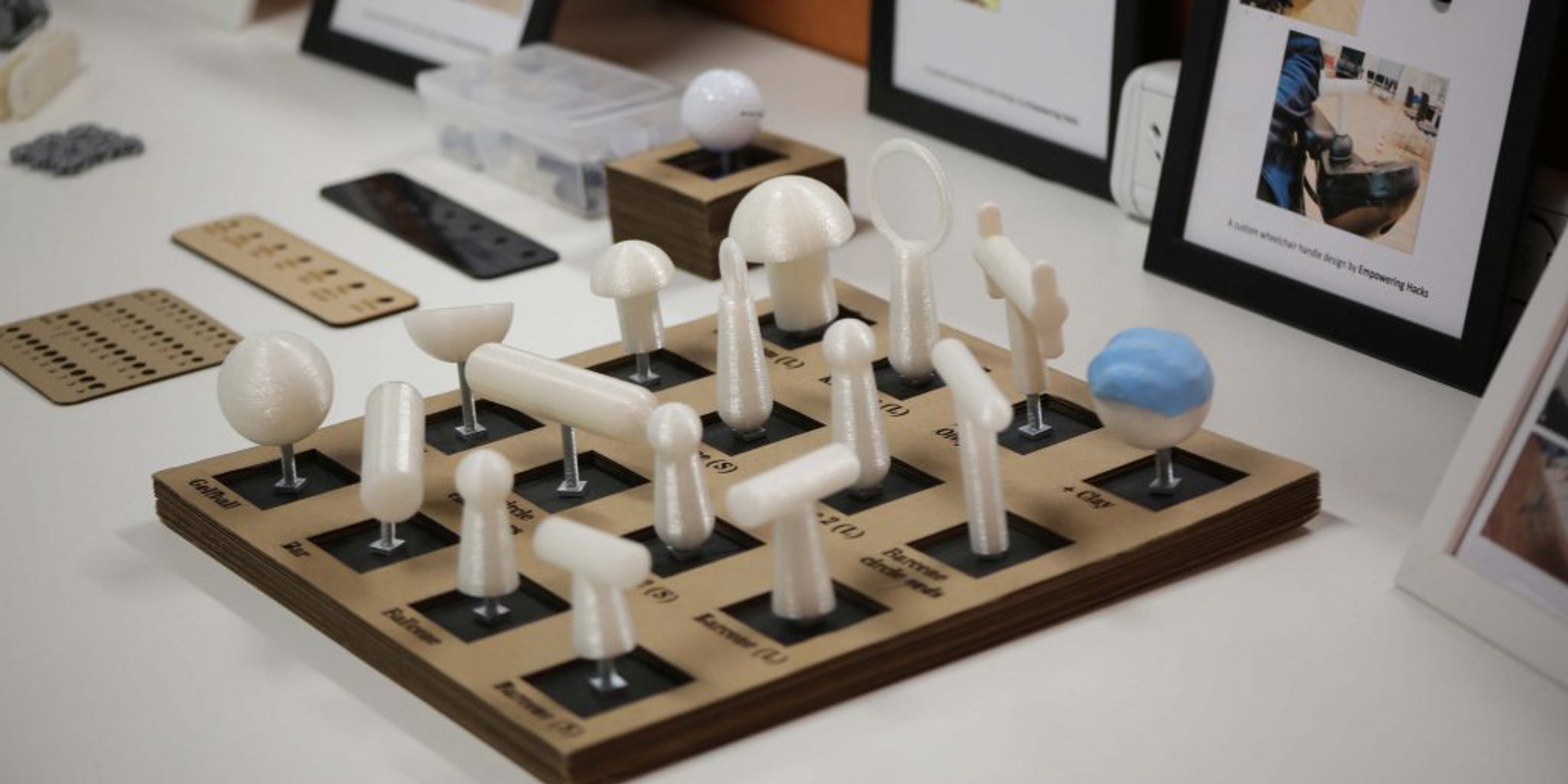
Empowering Hacks: challenging perceptions through DIY making
Design Futures

Collaborators Nick Packman, Norman Platt
Abstract
Breaking down barriers to DIY making through a co-research project led by two makers who identify as being disabled.
Method
Empowering Hacks has challenged perceptions of disability by upskilling two novice makers in 3D printing, laser cutting and programming.
Takeaways
These two co-researchers have developed their skills through weekly maker sessions at Open Lab and have gone on to share their work with international audiences.
The do-it-yourself (DIY) maker movement tries to get everyone involved in making, crafting and designing new things. New ‘maker spaces’ are popping up in libraries and schools, while exciting new tools like 3D printers and laser cutters have made this all possible.
But despite this being their aim, maker spaces don’t always manage to include everyone. Empowering Hacks seeks to change this, and challenge perceptions that disabilities automatically mean an inability to design and make.
The project has grown out of a collaboration that started back in 2016. Nick and Norman, two makers who both identify as having disabilities - and who had no prior experience - met PhD student Janis at an Open Lab workshop. They have worked together ever since, with Nick and Norman since becoming skilled makers and co-researchers.
Through weekly maker sessions held at Open Lab, Nick and Norman have worked with Janis to experiment with 3D printing, electronic programming and more. Driven by the fact that hardly any people with disabilities were involved in making, the team have focused their efforts on ‘hacking’ assistive technologies - everyday things that help people with disabilities get about.
DIY assistive technologies present a real opportunity to design for and with lived experience, and tailor to personal tastes where the mass market falls short.
Achievements of Empowering Hacks
As part of Empowering Hacks, Nick and Norman created a set of 3D-printed handles for powered wheelchairs. Wheelchair golf balls are a popular ‘hack’ for modifying the joystick shape on the control panel of power wheelchairs. Starting from here, they replicated the golf balls and went on to make a set of 15 differently shaped designs for wheelchair handles, ranging from T-shapes and ring cones to mushrooms.

In February 2020, the team held an event at the School of Computing that invited anyone to come test out the different handle designs on a fun obstacle course. At the event, Nick, Norman and other members of Open Lab also talked to members of the public about getting involved in DIY making, to inspire them to bring their own ideas to life.
The team has presented their work at public events to hundreds of different people, to show that making can be done by anyone and the things that you can make can be useful and fun. They celebrated the project’s achievements at the 2019 CHI conference in Glasgow [link], presenting a poster to researchers and practitioners in attendance. To make this poster, the team reflected on the project’s most memorable moments and plotted a visual timeline of their progress.
Highlights
- The team have demonstrated their work to hundreds of people at various different events. These events include Maker Faires in Newcastle and Vienna, two public wheelchair handle tests sessions at the Urban Sciences Building, a schools Enterprise Week in Open Lab and an undergraduate Project Faire in the School of Computing.
- A poster created by the co-researchers as a reflection on the project’s achievements was presented as Late Breaking Work at the 2019 CHI Conference in Glasgow.